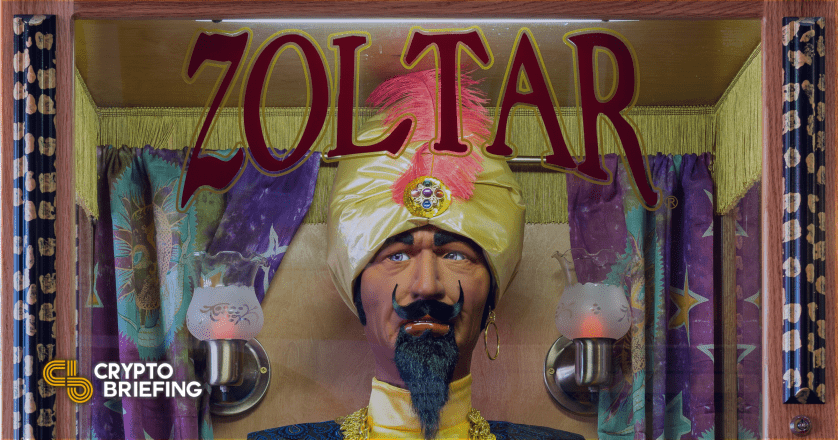IOTA Oracle Service Reminds Users of Project's Centralization
IOTA has launched first-party oracles, which are not the same as decentralized Oracles like Chainlink.

Key Takeaways
- IOTA Oracle service would be a standardized way to bring off-chain data feeds from a web API to the Tangle.
- IOTA said that first-party oracles would help check data issuers' authenticity, such as IoT sensors, and prevent manipulation.
- IOTA Oracle service is different from decentralized oracles such as Chainlink which rely on smart contracts for consensus.
Share this article
IOTA has launched a new oracle for users to push verifiable off-chain data onto the Tangle directly.
Off-Chain Data on Tangle
IOTA was first designed to help IoT systems better share data. The network is based on directed acyclic graph (DAG) technology called Tangle and is distinct from blockchain technology. The project has now launched an oracle.
According to a blog, the IOTA Oracle service offers a standardized way to bring off-chain data feeds from a web API to the Tangle. IOTA said that first-party oracles would help check data issuers’ authenticity, such as IoT sensors, and prevent manipulation.
First-party oracles do not rely on external third-party data sources but allow organizations to submit data to a ledger directly.
The IOTA team showed off the oracle service, where it pulled a crypto price feed from Kaiko cryptocurrency market data and pushed it to the IOTA Tangle for its use in applications. Once submitted, enterprise applications on IOTA can incorporate Kaiko’s data feed.
“The potential of data manipulation is greatly reduced if the source (e.g., a sensor) submits data directly to a tamper-proof distributed ledger without going through several intermediaries,” the team wrote in a blog.
First-party oracles are more suitable for enterprise use cases, something which IOTA has envisioned since its inception.
IOTA Oracles Are Not Decentralized
In the IOTA case, the oracle feeds would be verified by nodes on the Tangle network, making the authenticity of data feeds somewhat centralized.
IOTA Oracle service is different from decentralized oracles such as ChainLink, which rely on smart contracts for consensus.
The team is yet to implement smart contracts for Tangle. However, once smart contracts go live, the team said it would implement decentralized oracles.
The IOTA project has faced criticism for lacking security and being centralized. In February 2020, the network met a hack when several IOTA users reported that funds were being sent out of their wallets.
The team discovered a massive seed theft that happened due to the wallet’s integration with a third-party. After the hack was found, the team decided to pause the Coordinator, a select node run by the IOTA Foundation.
This led to the shutting down of the entire Tangle and hence proved its centralized nature.
Share this article
